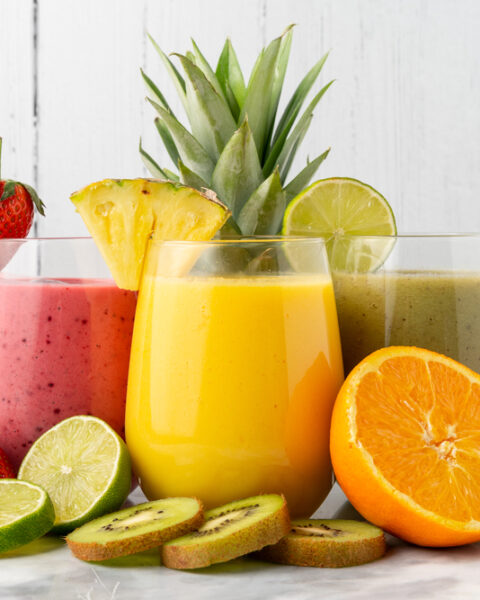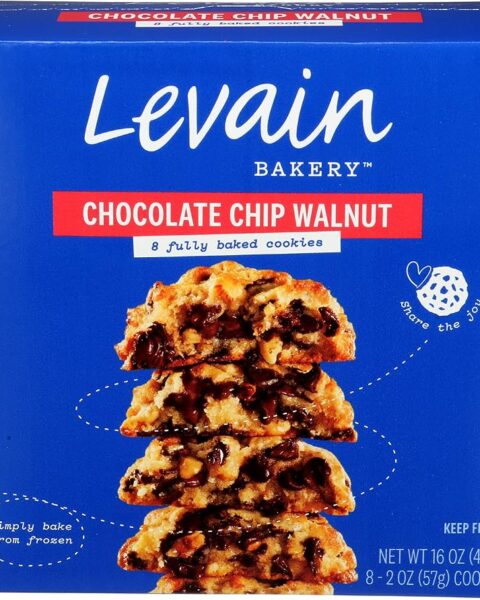We all want to stay sharp and focused, no matter our age. The good news is, what we eat can make a big difference in how well our brains function. By adding certain foods to your diet, you can boost your memory, improve your concentration, and even protect your brain against aging and diseases. These brain-boosting superfoods are packed with nutrients that help keep your mind healthy and active.
Contents
- 1 Blueberries
- 2 Fatty Fish
- 3 Turmeric
- 4 Broccoli
- 5 Pumpkin Seeds
- 6 Dark Chocolate
- 7 Nuts
- 8 Oranges
- 9 Eggs
- 10 Green Tea
- 11 Spinach
- 12 Beans
- 13 Avocados
- 14 Walnuts
- 15 Dark Leafy Greens
- 16 More From RetailShout
- 17 13 Surprisingly Delicious Ways to Cook with Flowers
- 18 20 Frugal Mistakes That Actually End Up Costing You More
Blueberries
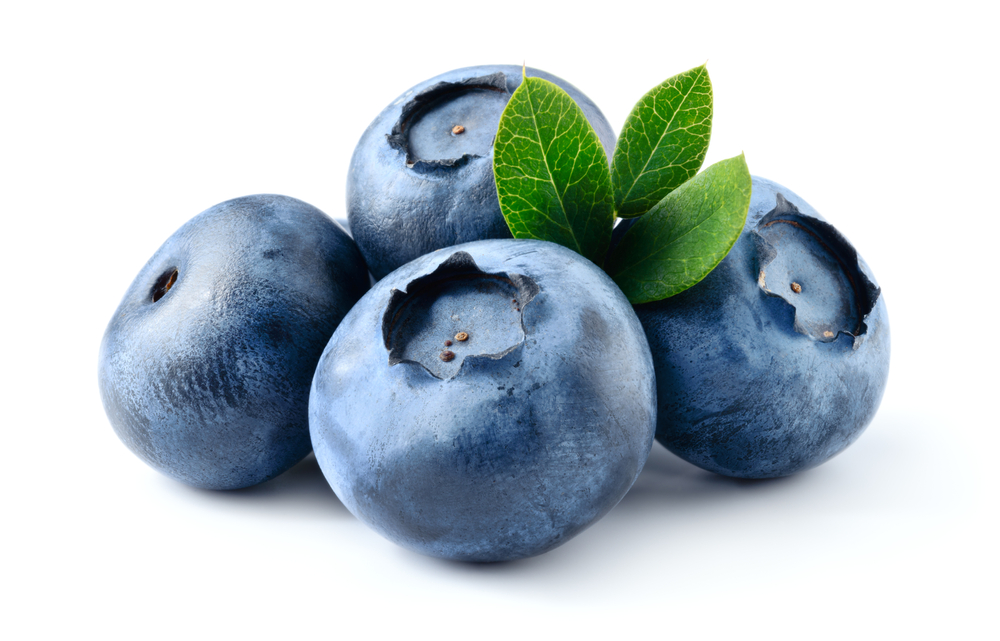
Blueberries are rich in antioxidants, specifically flavonoids, which are known to enhance cognitive function. These antioxidants combat oxidative stress and inflammation, two factors that contribute to brain aging and neurodegenerative diseases. Studies have shown that blueberries can improve memory and delay short-term memory loss. Consuming blueberries regularly may also help to enhance communication between brain cells. Additionally, they support brain plasticity, which helps the brain adapt to new information. Blueberries are versatile and can be easily added to various meals or enjoyed as a snack.
Fatty Fish
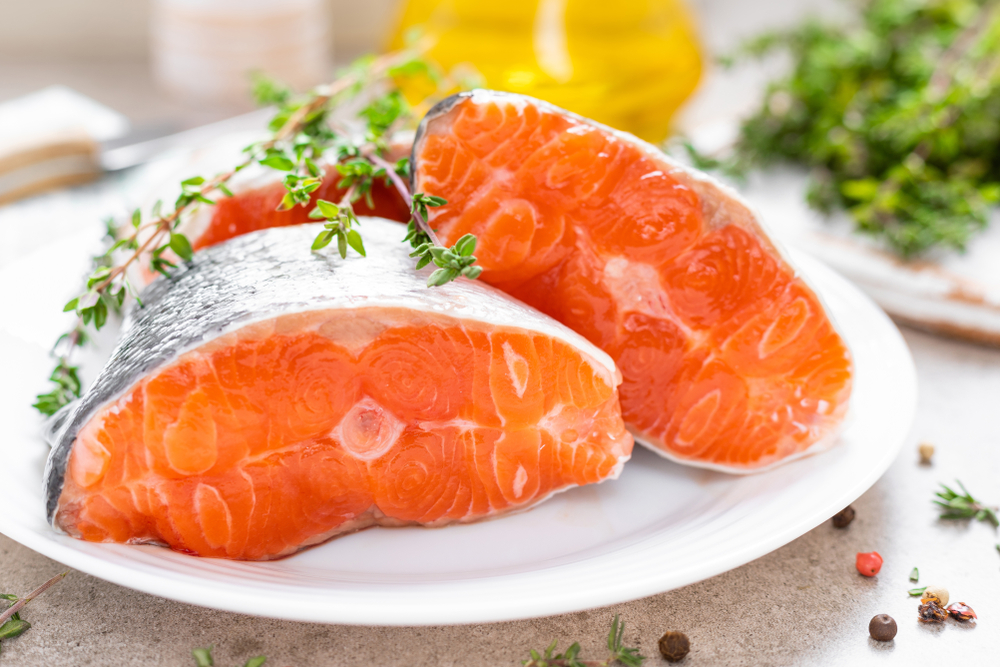
Fatty fish like salmon, trout, and sardines are excellent sources of omega-3 fatty acids. These essential fats are crucial for brain health as they build cell membranes and promote new neuronal growth. Omega-3s also have anti-inflammatory properties that can protect against brain aging and cognitive decline. Regular consumption of fatty fish is linked to increased gray matter in the brain, which is involved in memory and decision-making. Omega-3 fatty acids are also beneficial in improving mood and reducing symptoms of depression. Including fatty fish in your diet can significantly support overall brain function.
Turmeric

Turmeric contains curcumin, a compound with potent anti-inflammatory and antioxidant benefits. Curcumin can cross the blood-brain barrier, directly benefiting brain cells. It has been shown to improve mood and alleviate symptoms of depression by boosting serotonin and dopamine levels. Furthermore, it may reduce the risk of neurodegenerative diseases by clearing amyloid plaques, which are linked to Alzheimer’s disease. Turmeric can be added to various dishes or consumed as a supplement.
Broccoli

Broccoli is packed with powerful plant compounds, including antioxidants and vitamin K. Vitamin K is essential for forming sphingolipids, a type of fat found densely in brain cells. The high antioxidant content helps protect the brain from damage and supports overall cognitive health. Broccoli also contains compounds that have anti-inflammatory effects, which can reduce brain aging. Research suggests that eating broccoli can enhance memory and cognitive functions. It’s a versatile vegetable that can be eaten raw, steamed, or added to a variety of dishes.
Pumpkin Seeds

Pumpkin seeds are rich in antioxidants and a good source of magnesium, iron, zinc, and copper. These nutrients are crucial for brain health: magnesium supports learning and memory, zinc affects nerve signaling, copper helps control nerve signals, and iron is essential for brain function and cognitive development. The high antioxidant content in pumpkin seeds also protects the brain from free radical damage. Including these seeds in your diet can support mood improvement and prevent cognitive decline. They are a convenient snack and can be added to salads or baked goods.
Dark Chocolate
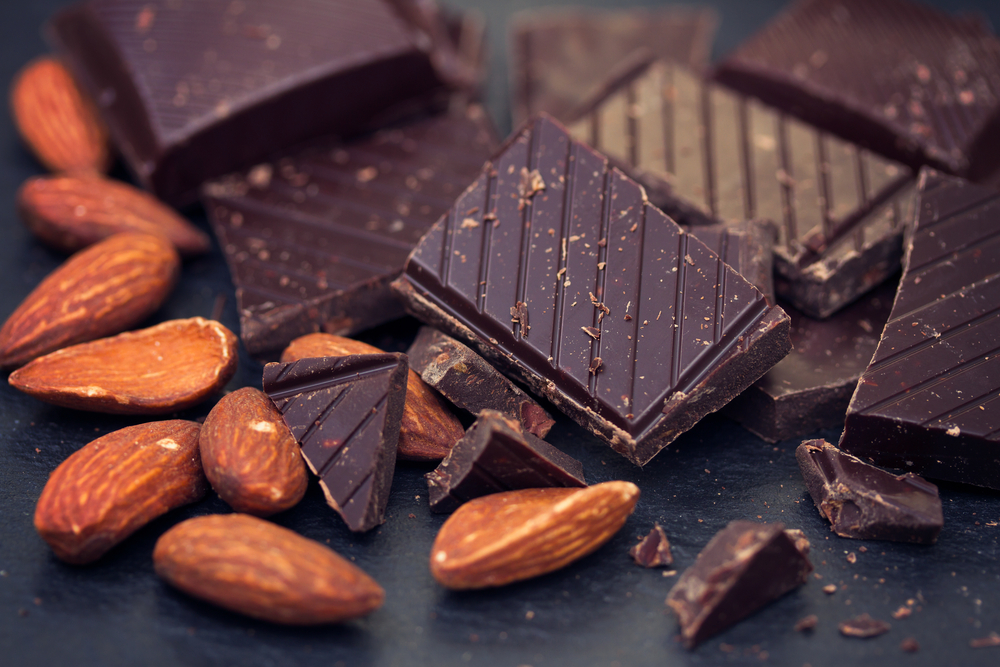
Dark chocolate is full of flavonoids, caffeine, and antioxidants. These components are beneficial for brain health by improving focus, enhancing memory, and protecting against cognitive decline. Flavonoids, in particular, can gather in the brain regions responsible for learning and memory, promoting neuron growth and enhancing blood flow. The caffeine in dark chocolate also contributes to improved mental alertness and concentration. Additionally, consuming dark chocolate can boost mood by stimulating endorphin production. It’s best to choose dark chocolate with at least 70% cocoa content for maximum benefits.
Nuts
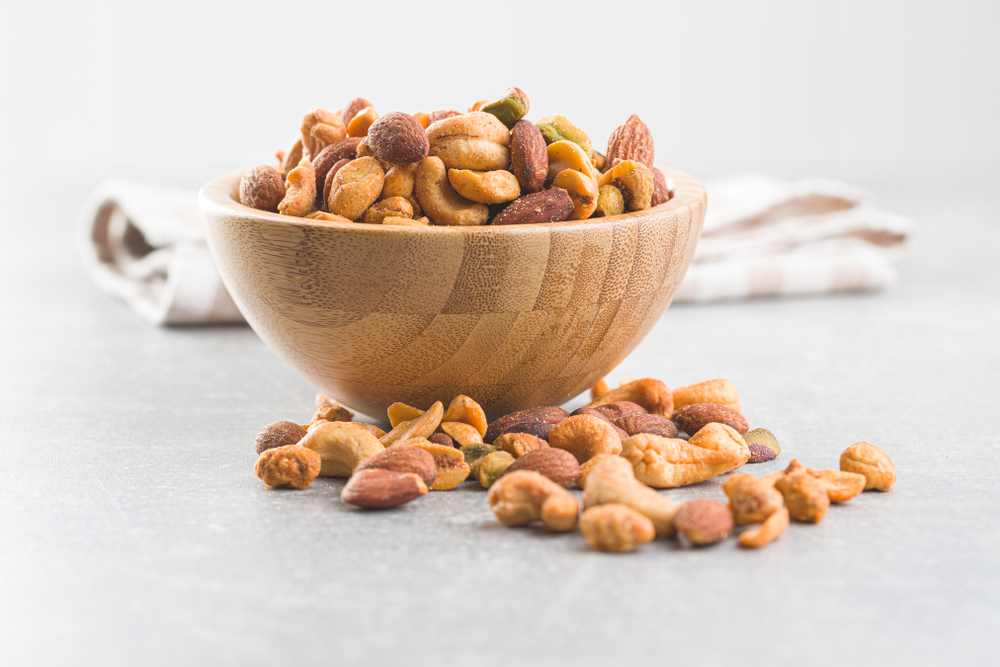
Nuts, especially walnuts, are excellent sources of healthy fats, antioxidants, and vitamin E. Vitamin E protects cells from oxidative stress and supports cognitive functions. The omega-3 fatty acids in nuts contribute to brain health by improving neuronal communication and reducing inflammation. Studies have found that regular consumption of nuts is linked to better brain function in older age. Nuts are also known to enhance memory and cognitive performance. Including a variety of nuts in your diet can provide a well-rounded source of brain-boosting nutrients.
Oranges

Oranges are rich in vitamin C, which is vital for preventing mental decline and protecting against neurodegenerative diseases. Vitamin C is a potent antioxidant that fights free radicals in the brain and body. High levels of vitamin C can improve overall brain health, including memory and cognition. Oranges also support immune function, which can indirectly benefit brain health. Consuming sufficient vitamin C-rich foods like oranges can delay brain aging and reduce the risk of cognitive impairment. They are a refreshing and nutritious snack, perfect for boosting brain health.
Eggs
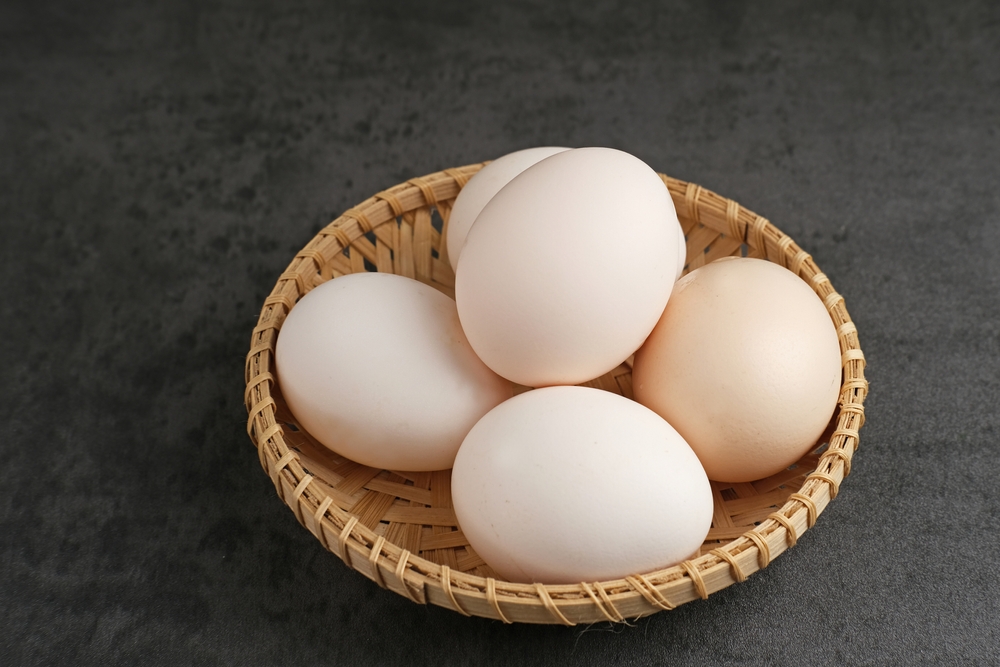
Eggs are a good source of several nutrients tied to brain health, including vitamins B6 and B12, folate, and choline. Choline is essential for the production of acetylcholine, a neurotransmitter important for mood and memory regulation. B vitamins help slow the progression of mental decline in the elderly and improve brain function. Folate is necessary for brain development and cognitive function. Regular consumption of eggs can support overall mental performance and cognitive health. They are versatile and can be prepared in numerous ways to fit various diets.
Green Tea

Green tea contains caffeine and L-theanine, which can enhance brain function and improve alertness. L-theanine increases the activity of the neurotransmitter GABA, which has anti-anxiety effects and promotes relaxation without drowsiness. Green tea also contains catechins, antioxidants that protect the brain from oxidative stress and improve memory. Drinking green tea regularly is associated with better cognitive performance and a lower risk of neurodegenerative diseases. It can be enjoyed hot or cold and is a healthier alternative to sugary beverages.
Spinach
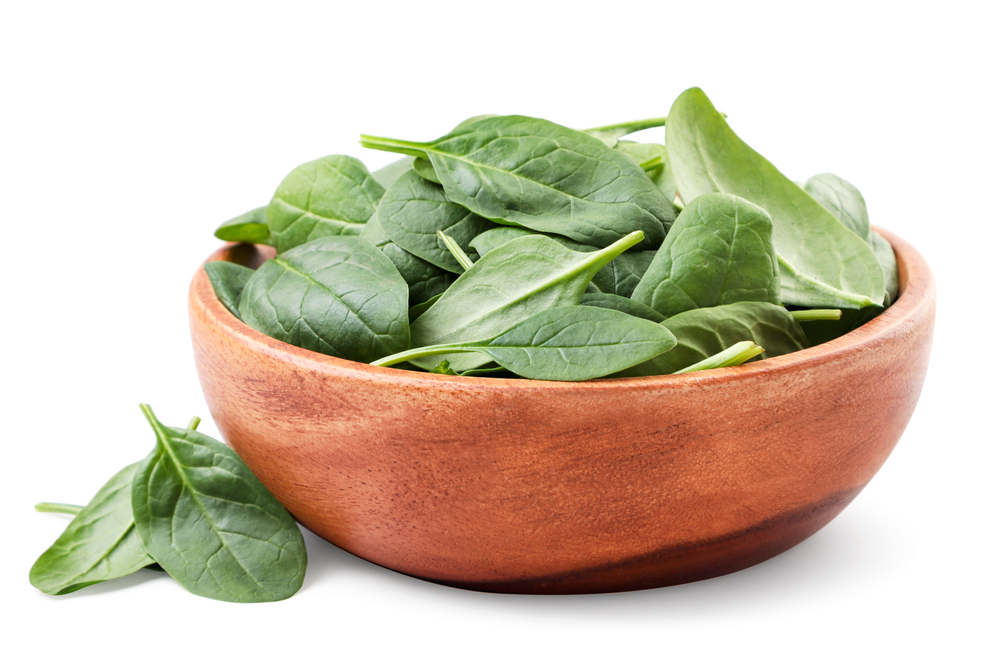
Spinach is packed with essential nutrients like vitamin K, folate, iron, and beta carotene, all of which are important for brain health. These nutrients help protect the brain from oxidative stress and support cognitive function. Spinach is particularly beneficial for improving memory and slowing cognitive decline in older adults. The high iron content in spinach ensures adequate oxygen supply to the brain, which is crucial for optimal brain function. Including spinach in your diet can enhance brain performance and protect against neurodegenerative diseases. It can be added to salads, smoothies, or cooked dishes.
Beans
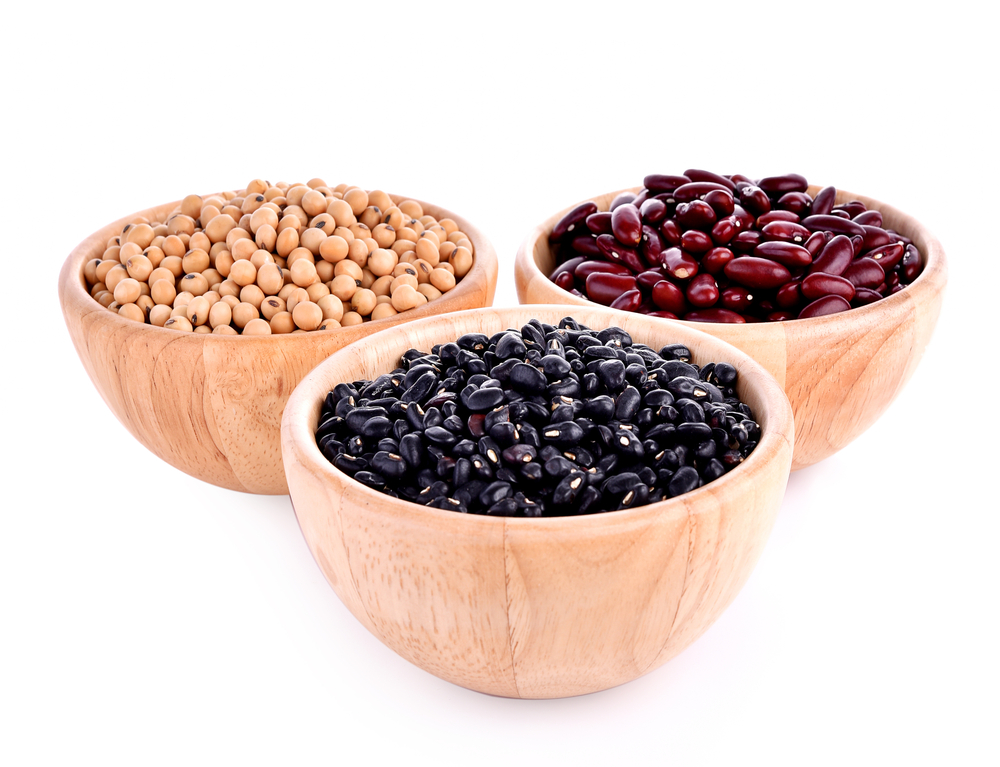
Beans are an excellent source of protein, fiber, and essential vitamins and minerals. They provide a steady source of glucose, which the brain uses for energy. The high fiber content in beans helps regulate blood sugar levels, preventing spikes and crashes that can affect cognitive function. Beans are also rich in antioxidants that protect the brain from oxidative damage. Regular consumption of beans is linked to improved cognitive function and reduced risk of cognitive decline. They are versatile and can be included in a variety of dishes, from soups to salads.
Avocados
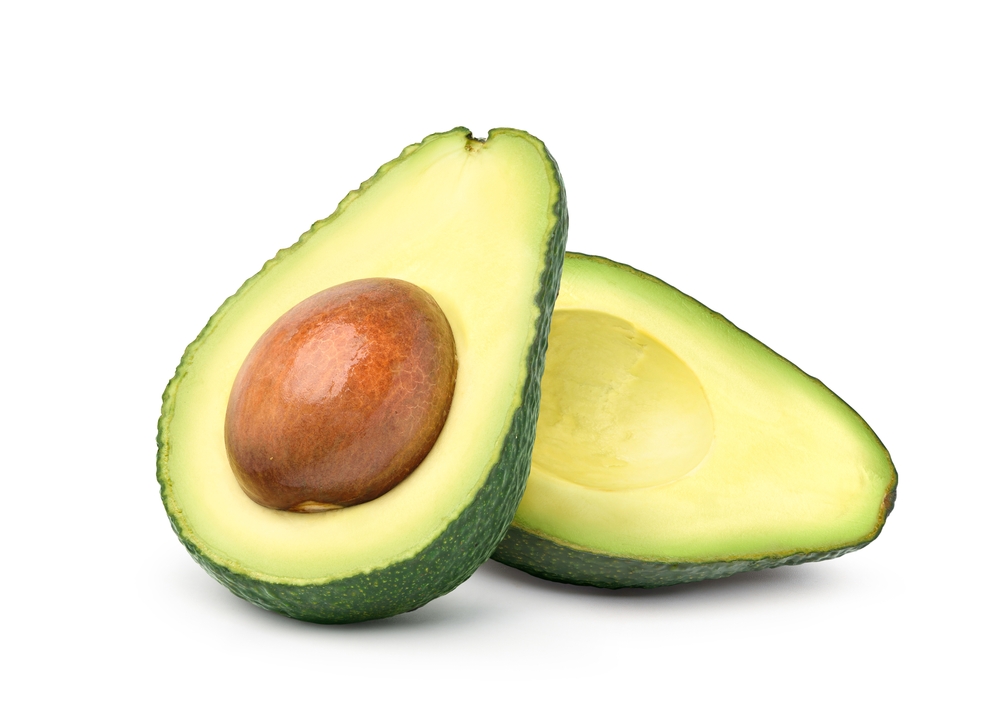
Avocados are rich in healthy monounsaturated fats, which support healthy blood flow and improve brain function. These fats are essential for maintaining healthy brain cells and enhancing cognitive processes. Avocados also contain high levels of vitamin E, which protects against cognitive decline and Alzheimer’s disease. Their high potassium content helps maintain proper blood pressure levels, reducing the risk of stroke. Including avocados in your diet can improve overall brain health and enhance memory and concentration. They can be added to salads, sandwiches, or enjoyed as a spread.
Walnuts
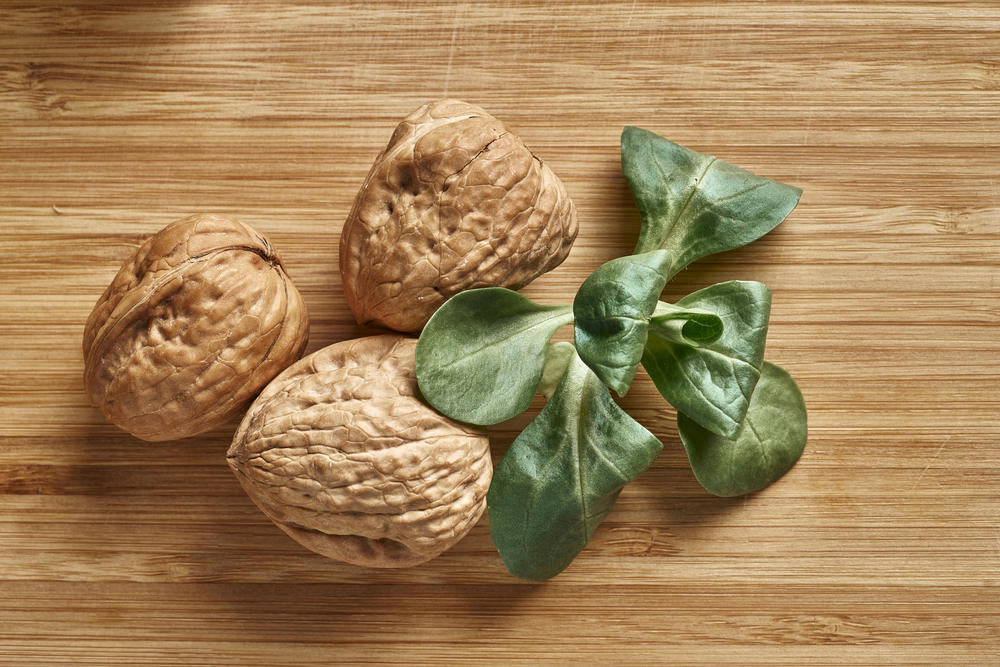
Walnuts are uniquely rich in DHA, a type of omega-3 fatty acid that is essential for brain health. DHA has been shown to improve cognitive performance and prevent age-related cognitive decline. Walnuts also contain antioxidants and other nutrients that reduce inflammation and protect brain cells from damage. Regular consumption of walnuts is associated with improved memory, learning capabilities, and mood. They are a convenient and nutritious snack that can be added to various dishes or eaten on their own. Including walnuts in your diet can significantly benefit brain health.
Dark Leafy Greens
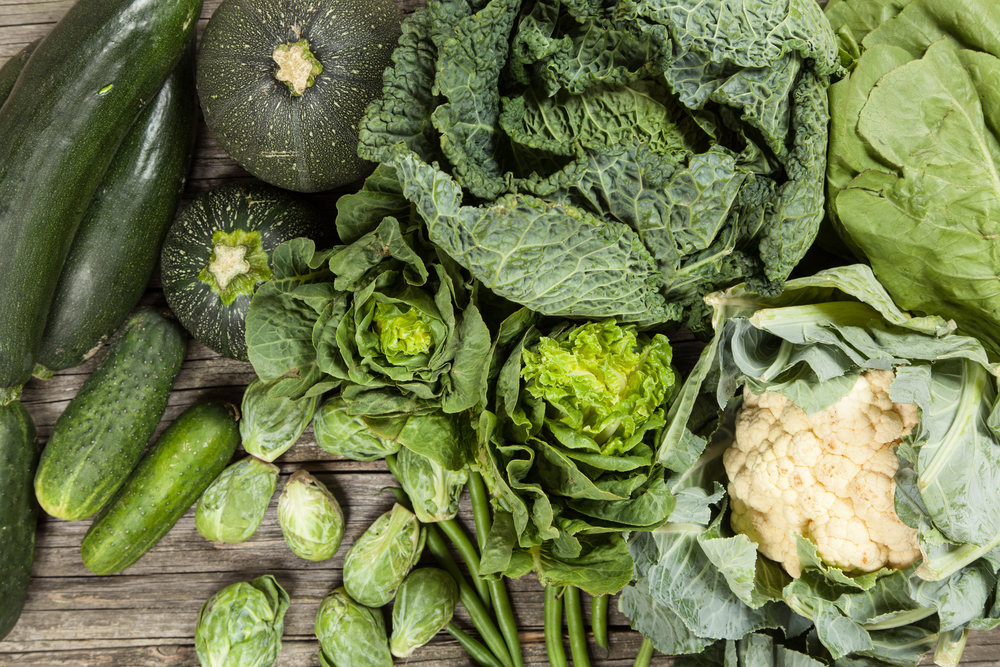
Dark leafy greens such as kale, spinach, and Swiss chard are nutrient-dense foods that support brain health. They are rich in vitamins A, C, E, and K, as well as antioxidants that protect the brain from oxidative stress. These greens also contain folate, which is important for brain development and function. Studies have shown that regular consumption of dark leafy greens is associated with slower cognitive decline and improved mental function. Adding these greens to your diet can boost brain health and protect against neurodegenerative diseases. They can be enjoyed in salads, smoothies, or cooked dishes.
This article originally appeared on RetailShout
More From RetailShout
25 Money-Saving Hacks for When Every Dollar Counts

Managing money can be a real challenge, especially when your budget is tight. But don’t worry, there are plenty of practical ways to save without feeling deprived. These tips aren’t just about cutting back; they’re about making smart choices that can help you stretch every dollar. Read More.
13 Surprisingly Delicious Ways to Cook with Flowers
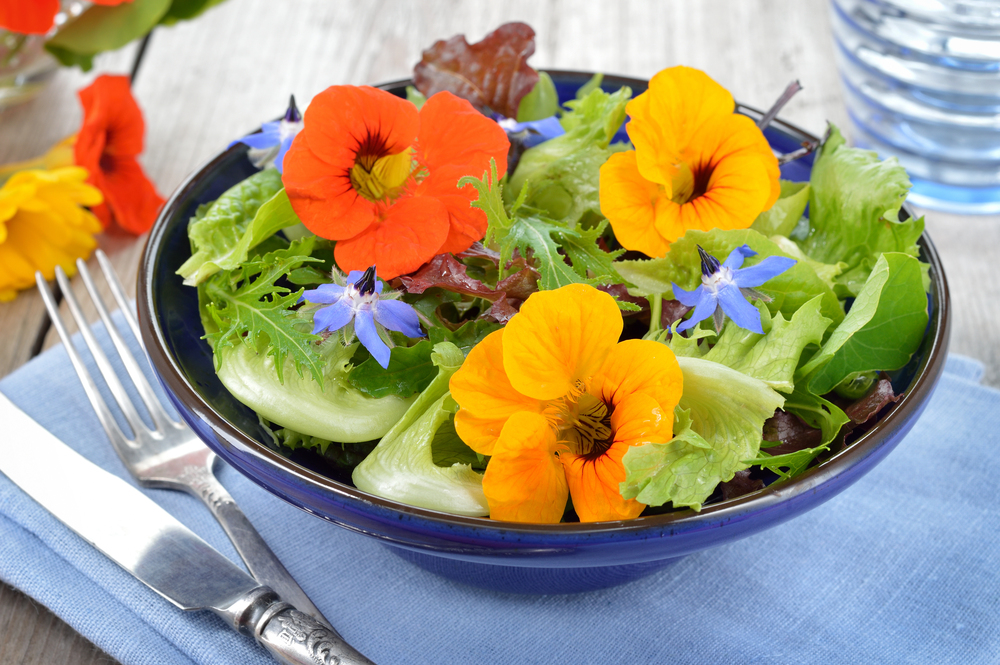
Cooking with flowers adds a unique, aromatic twist to your dishes, transforming everyday recipes into something extraordinary. Whether you’re looking to enhance your desserts, drinks, or savory meals, flowers offer a delicate flavor and vibrant color that can elevate your culinary creations. Read More.
20 Frugal Mistakes That Actually End Up Costing You More

Cutting costs is often a smart move, but sometimes, trying to save a few bucks can backfire and end up costing more down the line. We’ve all been there, thinking we’re being thrifty, only to find out later that our frugal habits are actually draining our wallets. Read More.




